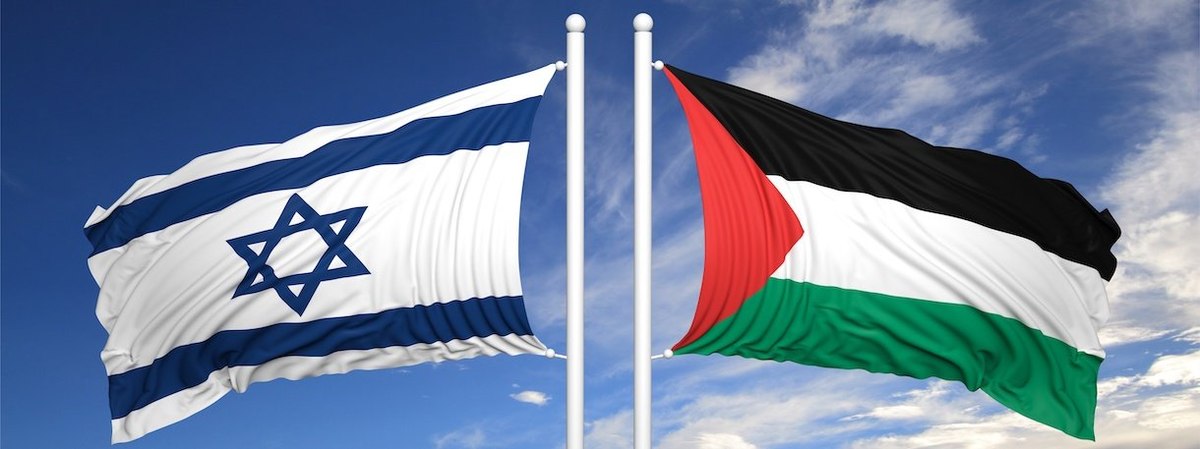Earlier this month, YouGov asked 1,000 American adult citizens their thoughts about the Israel-Hamas war — questions that had been lifted directly from an October 18-19 survey of Israelis by the Israel Democracy Institute.
The IDI survey found that Jewish and Arab Israelis had very different views on the war with Hamas and on the broader Israeli-Palestinian conflict. YouGov's results show the American public often has views on the Israeli-Palestinian conflict in between those of Israeli Arabs and Israeli Jews.
Because these polls were conducted at different times in a conflict whose scope has changed repeatedly over more than six weeks of fighting, they are not necessarily directly comparable. Every poll is only representative of what people felt at the time it was conducted, and that is a particularly significant disclaimer for assessing these polls.
American expectations for Israel's future fall between Israeli Jewish optimism and Israeli Arab pessimism
Two-thirds of Israeli Jews (66%) said they are either very (23%) or somewhat (43%) optimistic about the future of Israel, while 27% were either somewhat or very pessimistic.
In contrast, only 36% of Israeli Arabs felt optimistic, while 54% were pessimistic.
The American public fell in between: 46% were optimistic about Israel's future, while 27% were pessimistic.
Americans were more worried about Palestinian casualties than were Israeli Jews
Hard-line positions on the war with Hamas were common among Israeli Jews in October. 48% of Israeli Jews said Israel shouldn't consider the suffering of the civilian Palestinian population in Gaza at all when planning military strikes. Only 6% of Americans and 1% of Israeli Arabs agreed.
Another 36% of Israeli Jews said concern for Palestinian civilian suffering should "not so much" be a concern. Overall 83% of Israeli Jews said Gazan civilian suffering shouldn't be a major concern for Israel, while 13% said Israel should consider it "very much" or "quite a lot."
In contrast, 54% of Americans said Israel should consider the suffering of Gazan civilians, while 21% said it shouldn't and 25% didn't know. VIews among Israeli Arabs were even stronger, with 83% saying Israel should consider Gazan suffering and 6% disagreeing.
As of November 22, Israel and Hamas have agreed to a temporary ceasefire to exchange Israelis taken prisoner by Hamas for Palestinians held in Israeli prisons, and are working out details.
A month ago, such a move would have been unpopular among Israeli Jews. Only 9% said they supported a prisoner swap "even if it means halting the fighting." 37% of Americans and 60% of Israeli Arabs endorsed such a prisoner swap.
In contrast, 42% of Israeli Jews said they opposed a prisoner swap, either ever (27%) or before the fighting had finished (16%). 22% of Americans and 15% of Israeli Arabs felt the same way.
In the October poll, 37% of Israeli Jews said they supported a prisoner swap but only if it didn't stop the fighting. 14% of Americans and 6% of Israeli Arabs agreed.
The surveys do not necessarily reflect what any of the three populations feel now about the current prisoner swap deal.
— Carl Bialik contributed to this article
Methodology for YouGov poll: The YouGov poll was conducted online on October 27 - November 2, 2023 among 1,000 U.S. adult citizens. Respondents were selected from YouGov’s opt-in panel using sample matching. A random sample (stratified by gender, age, race, education, geographic region, and voter registration) was selected from the 2019 American Community Survey. The sample was weighted according to gender, age, race, education, 2020 election turnout and presidential vote, baseline party identification, and current voter registration status. Demographic weighting targets come from the 2019 American Community Survey. Baseline party identification is the respondent’s most recent answer given prior to November 1, 2022, and is weighted to the estimated distribution at that time (33% Democratic, 31% Republican). The margin of error for the overall sample is approximately 4%.
Image: Getty











